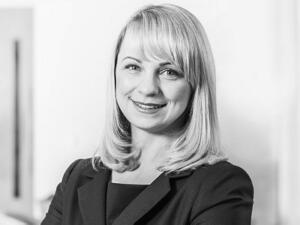UPC hears first main trial concerning second medical use
This week, the UPC heard its first hearing on the merits in a second medical use patent case. The dispute is part of ongoing litigation in various courts over competing cholesterol-lowering drugs — Sanofi's Praluent and Amgen's Repatha. The hearing demonstrates how patent disputes over blockbuster drugs can play out at the UPC.
26 February 2025 by Christina Schulze
On a bright February morning, around twenty lawyers from each pharmaceutical company filed into the courtroom of the UPC’s Düsseldorf local division. The atmosphere was tense as presiding judge Ronny Thomas opened the first hearing on the merits concerning second medical use at the UPC (ACT_597355/2023 and CC_24999/2024, UPC_CFI_505/2023).
In many ways, the scene embodied what generations of lawyers had imagined a UPC hearing would look like before the court began: high stakes, copious lawyers and patent attorneys from different countries, and English as the language of proceedings.
Previous success for Sanofi
The race to develop cholesterol-lowering drugs based on PCSK9 inhibitors has been fierce among major pharmaceutical companies. Both plaintiff Sanofi, which partnered with Regeneron, and defendant Amgen were among the first to develop marketable products. In summer 2024, Sanofi and Regeneron already prevailed at the UPC in a case concerning patents for the same drugs. The Munich central division declared Amgen’s EP 3 666 797 invalid for the entire UPC area.
However, at this week’s hearing at the Düsseldorf local division, Sanofi and Regeneron had sued Amgen for infringement of Regeneron’s second medical use patent EP 3 536 712. Amgen had filed a counterclaim for revocation. The court heard both cases together.
The patent concerns methods for reducing lipoprotein(a) levels by administering a PCSK9 inhibitor. Much of the hearing focused on how standard it was to measure LP(a) levels in clinical research and patient treatment. Regeneron’s second medical use patent seeks to claim the effects of PCSK9 inhibitors on a specific lipoprotein, Lp(a).
Extensive legal teams
Niels Hölder from Munich firm Hoffmann Eitle and Daniel Wise from UK firm Carpmaels & Ransford led arguments for Sanofi.
- Niels Hölder
- Daniel Wise
- Emily Nikolic
- Agathe Michel-de Cazotte
The Carpmaels team included Agathe Michel-de Cazotte, Emily Nikolić, Ekaterina Langford, Hiske Roos, Elizabeth Taylor, and Hadi Godazgar. From Hoffmann Eitle the team comprised Mike Gruber and Michael Pfeifer. Jörk Zwicker led the patent attorney team from ZSP.
For Amgen, Johannes Heselberger from Bardehle Pagenberg in Munich and Koen Bijvank from Brinkhof in Amsterdam presented the defence. Bijvank and Heselberger had already led the earlier UPC proceedings in Munich along with Daan de Lange from Brinkhof and Bardehle Pagenberg’s Axel Berger.
- Johannes Heselberger
- Koen Bijvank
- Ulrich Dörries
In addition, the extensive team included patent attorneys from df-mp around Ulrich Dörries. Will James and Trevor Crosse from Osborne Clarke and Lauren Martin from Quinn Emanuel also played a role.
The bench comprised presiding judge Ronny Thomas, judge rapporteur Bérénice Thom, LQJ András Kupecz and TQJ Xavier Dorland-Galliot.







